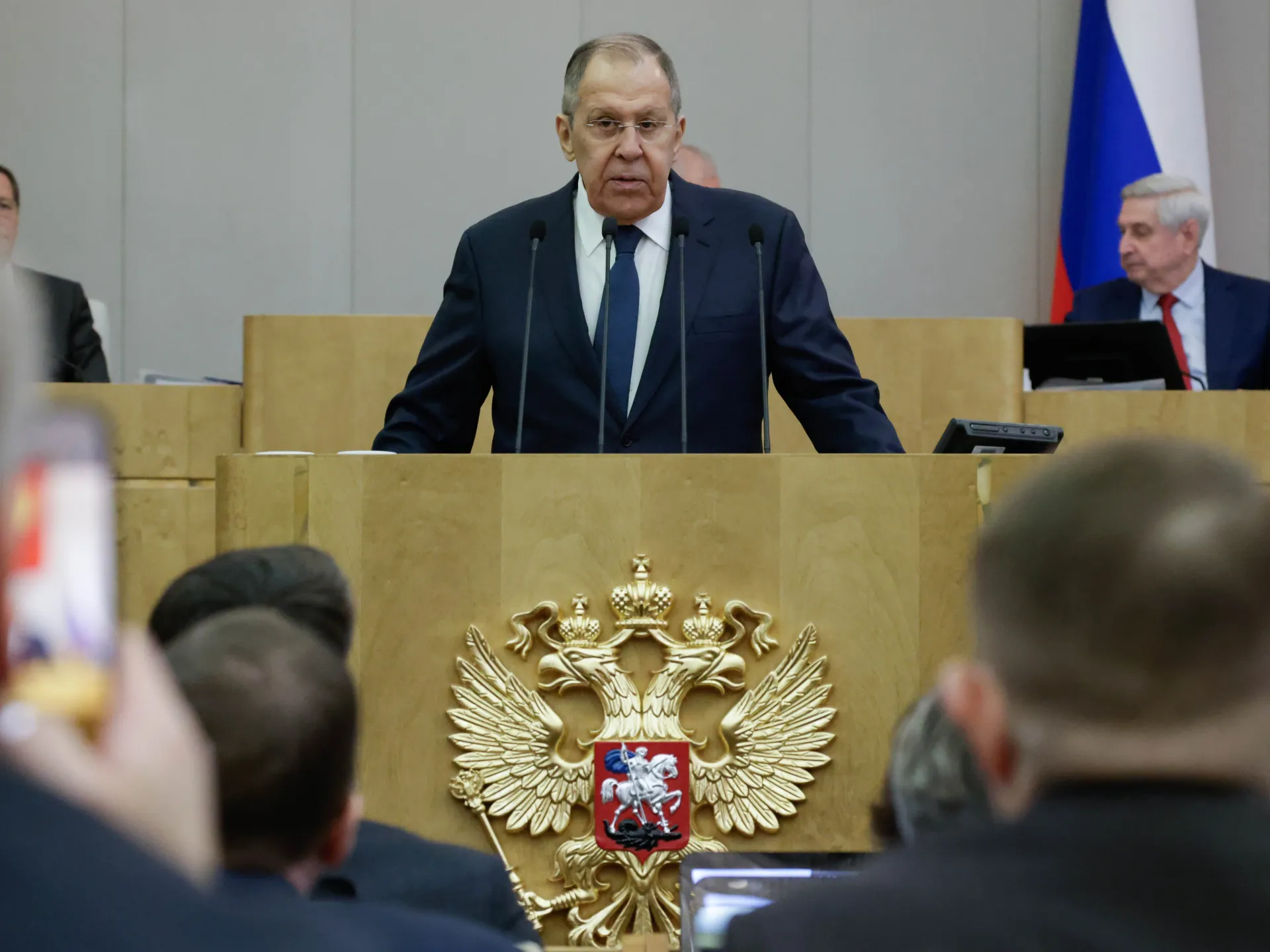Russia says it will stick to limits of expired nuclear treaty if US does | Nuclear Weapons News
Foreign Minister Sergey Lavrov did not say why he believed the US would respect the limits set out in New START.
Published On 11 Feb 2026
Russia has said it will abide by limits on its nuclear weapons as set out in a lapsed arms control treaty with the United States, as long as Washington continues to do the same.
The New START agreement expired earlier this month, leaving the world’s two biggest nuclear-armed powers with no binding constraints on their strategic arsenals for the first time in more than half a century and sparking fears of a new global arms race.
Recommended Stories
list of 3 itemsend of list
In an address to parliament on Wednesday, Russian Foreign Minister Sergey Lavrov said that Moscow was in no rush to start developing and deploying more weapons – backtracking on comments made by his ministry last week that said Russia considered itself no longer bound by the treaty’s terms.
“We proceed from the fact that this moratorium, which was announced by our president, remains in effect, but only while the United States does not exceed the outlined limits,” said Lavrov.
“We have reason to believe that the United States is in no hurry to abandon these limits and that they will be observed for the foreseeable future,” he said, without explaining the basis for that assumption.
US President Donald Trump rejected an offer from Russian President Vladimir Putin to voluntarily abide by the limits set out in New START for another year, saying he wanted a “new, improved and modernised” treaty rather than an extension of the old one.
Russia has also indicated it wants to strike a new arms control agreement.
Washington is pushing for China to be included in the talks, pointing to its growing nuclear arsenal.
According to the Stockholm International Peace Research Institute (SIPRI), China’s nuclear arsenal is growing faster than that of any other country by about 100 new warheads a year since 2023.
However, Beijing refuses to negotiate with the US and Russia because it says it has only a fraction of their warhead numbers – an estimated 600, compared with about 4,000 each for Russia and the US.
As the treaty expired, Chinese Foreign Ministry spokesperson Lin Jian said that China would not be joining the bilateral arms-reduction talks.
Moscow says if China is brought into a new deal, then so too should the US’s nuclear allies, the United Kingdom and France, which have 290 and 225 warheads, respectively.
New START, first signed in Prague in 2010 by the then-presidents of the US and Russia, Barack Obama and Dmitry Medvedev, limited each side’s nuclear arsenal to 1,550 deployed strategic warheads – a reduction of nearly 30 percent from the previous limit set in 2002.
Deployed weapons or warheads are those in active service and available for rapid use as opposed to those in storage or awaiting dismantlement.
It also allowed each side to conduct on-site inspections of the other’s nuclear arsenal, although these were suspended during the COVID-19 pandemic and have not resumed since.
Russia in 2023 rejected inspections of its nuclear sites under the treaty, as tensions rose with the US over its nearly four-year war in Ukraine.
But it said it had remained committed to the quantitative limits set down.
